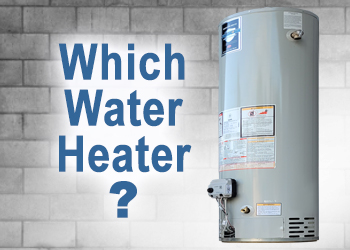 Choosing a water heater involves considering factors like the type of water heater, fuel source, size, energy efficiency, and your specific needs. Here’s a step-by-step guide to help you make an informed decision:
Choosing a water heater involves considering factors like the type of water heater, fuel source, size, energy efficiency, and your specific needs. Here’s a step-by-step guide to help you make an informed decision:
- Type of Water Heater:
- Storage Tank Water Heater: These are traditional water heaters that store and heat a specific amount of water in a tank. They are available in various sizes.
- Tankless Water Heater: Also known as on-demand water heaters, these heat water directly without using a storage tank. They are more energy-efficient but have limitations on simultaneous hot water usage.
- Fuel Source:
- Electric: These are common and relatively easy to install. However, they might have higher operational costs depending on electricity prices in your area.
- Gas (Natural Gas or Propane): Gas heaters tend to be more energy-efficient and offer faster heating, but they require proper ventilation and are often more expensive to install initially.
- Size and Capacity:
- Choose a water heater with an appropriate capacity for your household’s needs. Consider the number of people in your household, daily hot water usage, and peak demand times.
- A rough estimate is that a family of four would typically require a 40-50-gallon tank water heater. For tankless heaters, calculate the required flow rate based on simultaneous hot water needs.
- Energy Efficiency:
- Look for the Energy Factor (EF) rating for storage tank water heaters and the Energy Efficiency Rating (EER) or Uniform Energy Factor (UEF) for tankless heaters. Higher ratings indicate better efficiency.
- ENERGY STAR certified models are generally more energy-efficient and might qualify for rebates or incentives.
- Space and Installation:
- Consider the available space for installation. Tankless water heaters are often more compact and can be wall-mounted.
- If you’re replacing an existing unit, it might be more straightforward to stick with the same type and fuel source, as changing might require additional plumbing and gas line work.
- Cost Considerations:
- Factor in the initial cost of the water heater, installation costs, and potential operational costs (energy bills).
- Tankless heaters are usually more expensive upfront but might save money in the long run due to energy efficiency.
- Maintenance and Longevity:
- Tankless heaters generally have a longer lifespan than tank heaters. Tank heaters might require occasional flushing to remove sediment buildup.
- Consider the warranty offered by the manufacturer. Longer warranties often indicate a more durable unit.
- Local Regulations and Codes:
- Check local building codes and regulations related to water heater installation and safety requirements.
- Ensure proper ventilation and safety measures, especially for gas heaters.
- Research and Reviews:
- Read reviews and customer feedback about specific models you’re considering. This can provide insights into real-world performance and potential issues.
- Consultation:
- If you’re unsure, consult with a professional plumber or HVAC technician. They can assess your specific needs, recommend suitable options, and ensure proper installation.
Remember that choosing the right water heater involves a balance between your budget, energy efficiency goals, household size, and available space. Taking the time to research and consider all these factors will help you make the best decision for your home.
